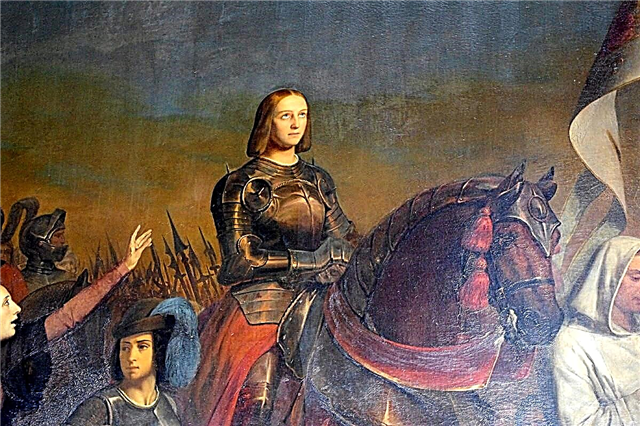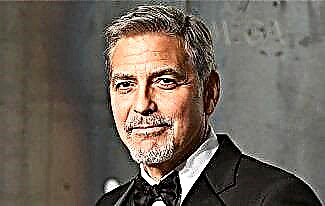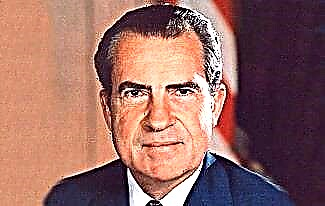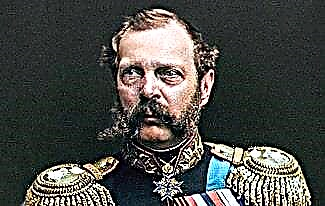Victor Suvorov (real name Vladimir Bogdanovich Rezun; genus. 1947) - a writer who gained great popularity in the field of historical revisionism.
Ex-employee of the Main Intelligence Directorate of the USSR in Geneva. In 1978 he deserted to Great Britain, in connection with which he was sentenced to death in absentia.

In his military history works, Suvorov proposed an alternative concept of the role of the USSR in World War II (1939-1945), which was ambiguously accepted by society. The first and most famous book on this subject is Icebreaker.
There are many controversial facts in the biography of Viktor Suvorov, which we will discuss in this article.
So, before you is a short biography of Suvorov (Rezun).
Biography of Viktor Suvorov
Viktor Suvorov (Vladimir Bogdanovich Rezun) was born on April 20, 1947 in the village of Barabash, Primorsky Territory. He grew up and was brought up in the family of the artilleryman Bogdan Vasilyevich and his wife Vera Spiridonovna. The historian has an older brother, Alexander.
Childhood and youth
At the end of the 4th grade, the future writer became a student at the Voronezh Suvorov military school. Since 6 years later this educational institution was disbanded, the last year he completed his studies at a similar school in the city of Kalinin (now Tver).
In 1965, without passing exams, Suvorov was immediately enrolled in the 2nd year of the Kiev Higher Combined Arms Command School named after I. Frunze. A year later, the young man joined the ranks of the CPSU.

After graduating from college with honors, Victor participated in the military campaign to bring troops into Czechoslovakia. In 1968 he was entrusted with command of a tank platoon in Chernivtsi.
During the period of his biography 1968-1970. Suvorov was in the service in the Carpathian military district, being one of the intelligence officers. Then he was in the intelligence department in the city of Kuibyshev.
From 1971 to 1974, Viktor Suvorov studied at the Military-Diplomatic Academy, after which he worked for about 4 years in the Geneva residency of the GRU as a secret intelligence officer at the UN European Office.
In June 1978, Suvorov, along with his wife and two children, disappeared without a trace from their home in Geneva. According to the officer, he had to start cooperating with British intelligence, as he feared that for a serious failure in the work of the Soviet station, he could be made "extreme."
A couple of weeks later, articles appeared in the English press that Viktor Suvorov was in Great Britain.
Writing activity
The intelligence officer began writing books in earnest in 1981. It was at that time of his biography that he took a pseudonym - Viktor Suvorov.
He decided to choose such a surname for himself, since he was engaged in teaching tactics and military history, and as you know, the famous commander Alexander Suvorov is considered one of the most authoritative tacticians and strategists in history.
In his historical works, the writer severely criticized the traditional causes of the Second World War (1939-1945) and the Great Patriotic War (1941-1945). He put forward his hypothesis as to why Nazi Germany attacked the Soviet Union.

Suvorov paid great attention to the very beginning of the war, examining in detail the chronology of all events. In his opinion, the key reason for the Great Patriotic War is Stalin's policy aimed at the occupation of a number of European countries and the establishment of socialism in them.
Viktor claims that in July 1941, Soviet troops themselves were preparing to attack Germany. This operation was allegedly called "The Thunderstorm". Nevertheless, many authoritative experts are critical of Viktor Suvorov's statements.
The overwhelming majority of experts, including Western ones, refute the concept of the writer. They accuse him of deliberately falsifying facts and superficial examination of documents.
Nevertheless, many historians support some of Suvorov's conclusions. They state that in his work he relied on a number of serious documents that had previously been poorly researched or not taken into account at all. It is worth noting that the views of the former intelligence officer are supported by Russian writers - Mikhail Weller and Yulia Latynina.
An interesting fact is that the first book of the historian - "The Liberators" (1981) was published in English and consisted of 3 parts. It mainly criticized the Soviet troops. 4 years later, he published his autobiographical work "Aquarium", which was dedicated to the special forces of the USSR and the GRU.
After that, the book "Icebreaker" was published, thanks to which Suvorov gained worldwide fame. The main leitmotif of the work was the version of the reasons for the outbreak of World War II in the genre of historical revisionism. In subsequent works, this topic will be raised more than once.
In the 90s, Viktor Suvorov presented such works as "Control", "The Last Republic", "Choice" and "Purification". It is curious that in the last book the author described the Stalinist purges in the Red Army. Moreover, in his opinion, such purges only contributed to the strengthening of the Soviet troops.

In the next decade, Suvorov presented 6 more works, including the "Last Republic" trilogy. Then the works "Snake Eater", "Against All", "Bummer" and others were published.
Books by Viktor Suvorov are sold in large quantities not only in Russia, but also far beyond its borders. Moreover, they have been translated into over 20 foreign languages. Many people explain this not just by popularity, but by artificial manipulation aimed at destroying the historical past of the USSR and rewriting the history of the Great Victory of the Second World War.
Personal life
The wife of Viktor Suvorov is Tatyana Stepanovna, who is 5 years younger than her husband. Young people legalized their relationship in 1971. In this marriage, a girl Oksana and a boy Alexander were born.
Viktor Suvorov today
In 2016, Suvorov gave a voluminous interview to Ukrainian journalist Dmitry Gordon. In it, he shared many interesting facts from his personal biography, and also paid great attention to military and political issues.
In 2018, the writer presented his new book "Spetsnaz". In it, he tells not only about the special forces, but also tells about the scouts.
Photo by Viktor Suvorov














